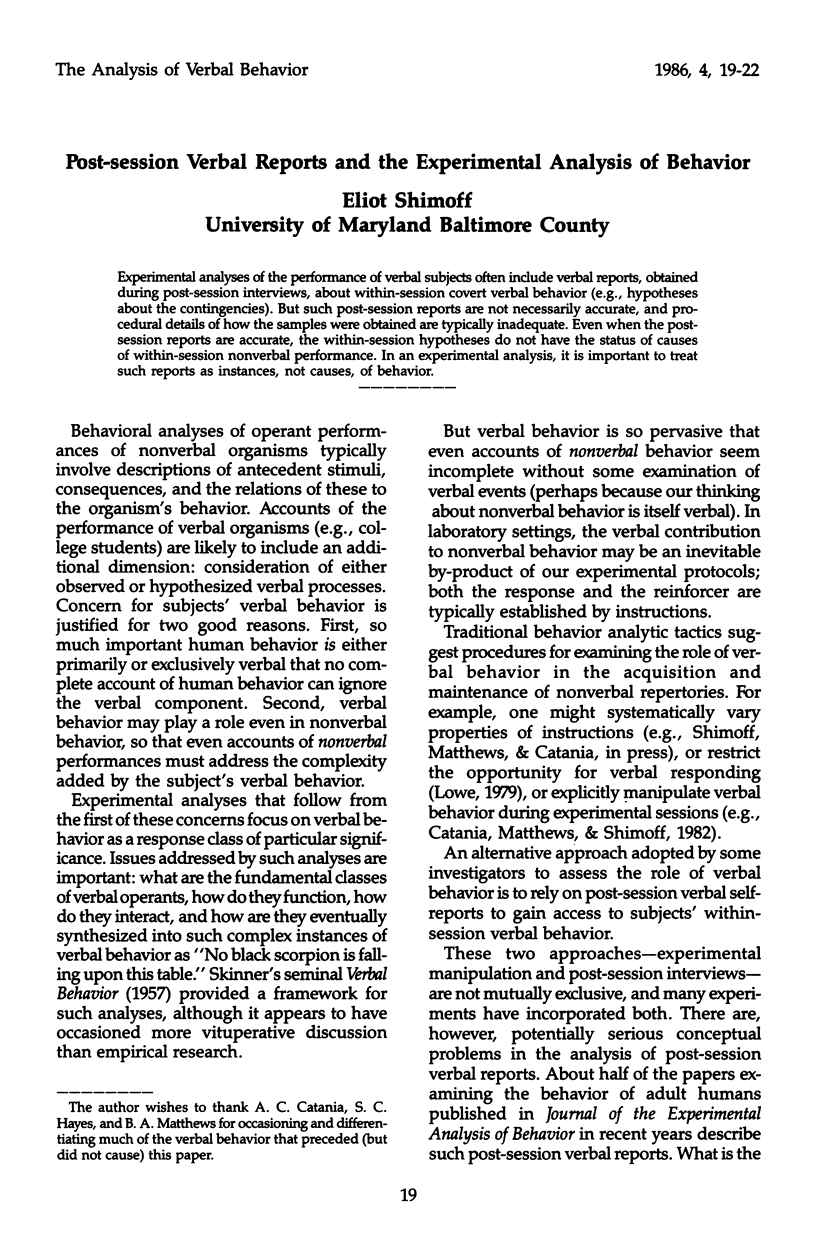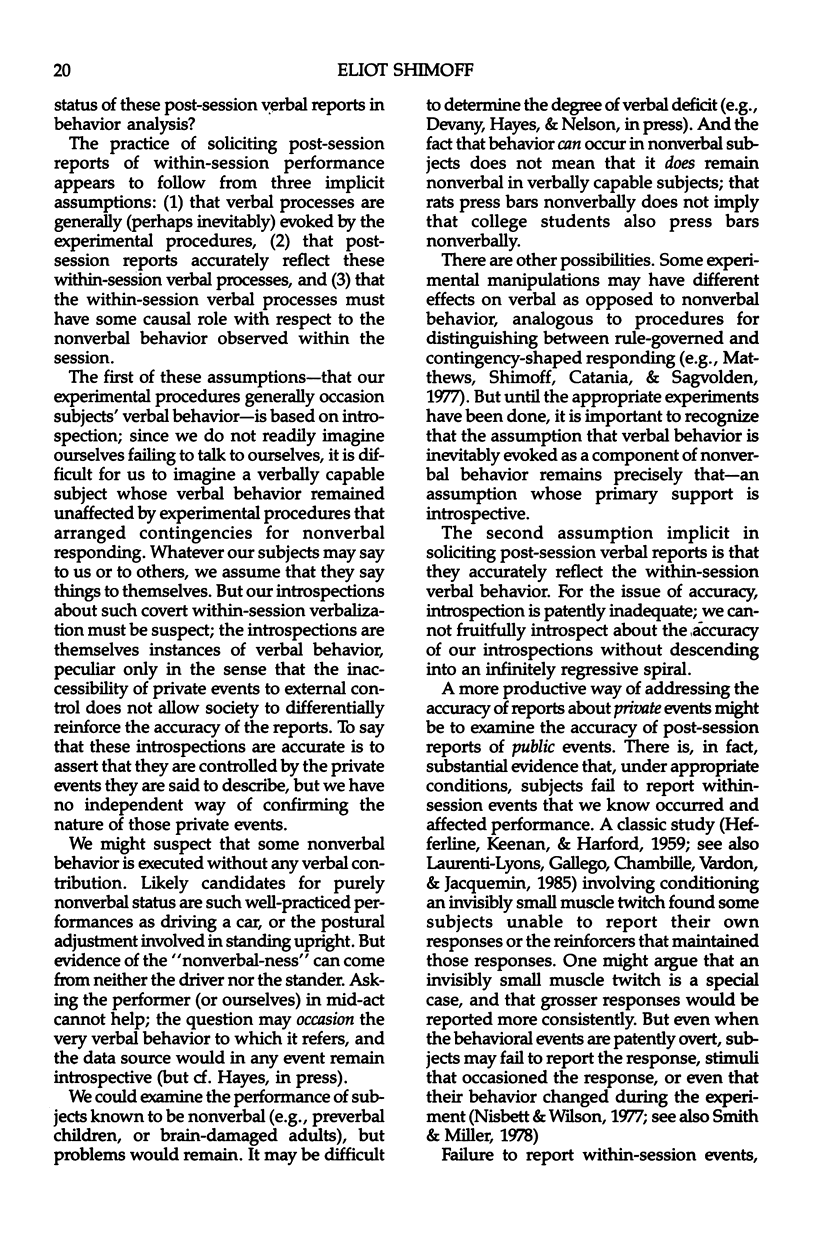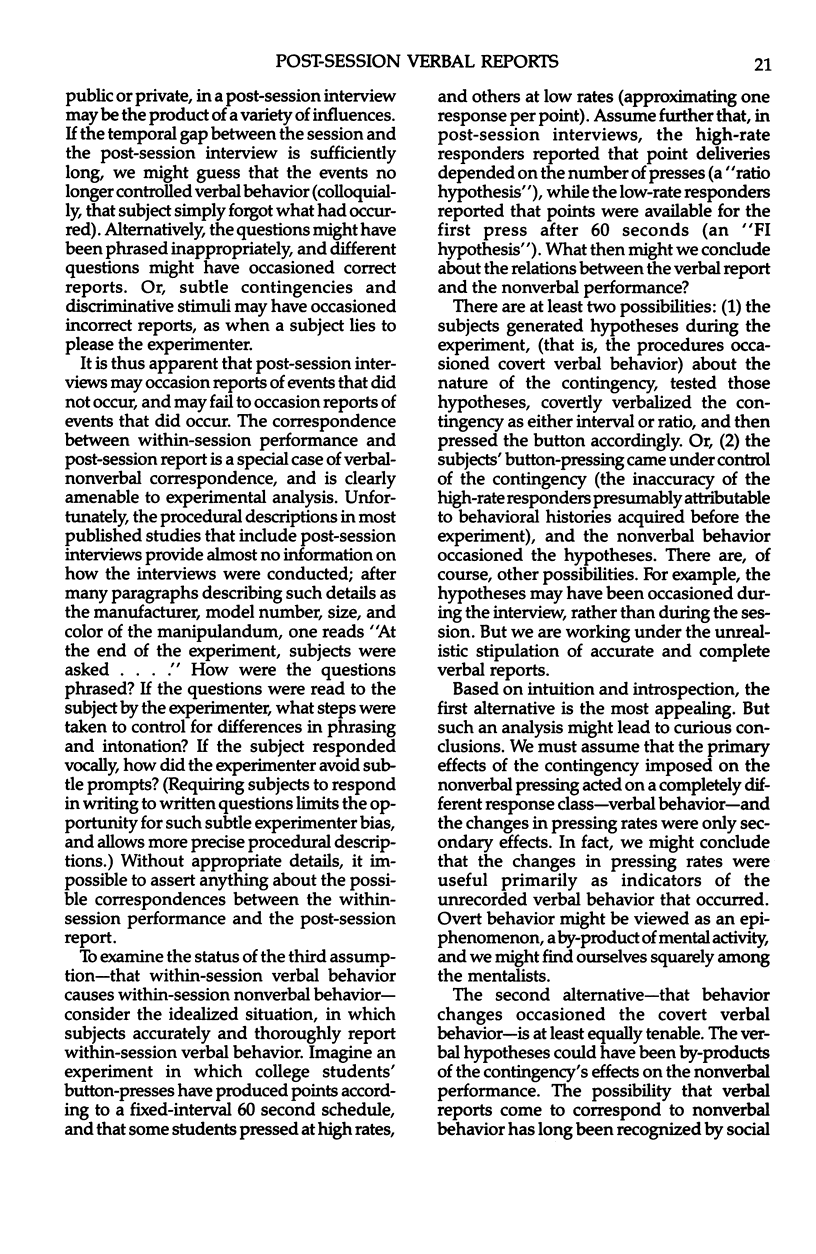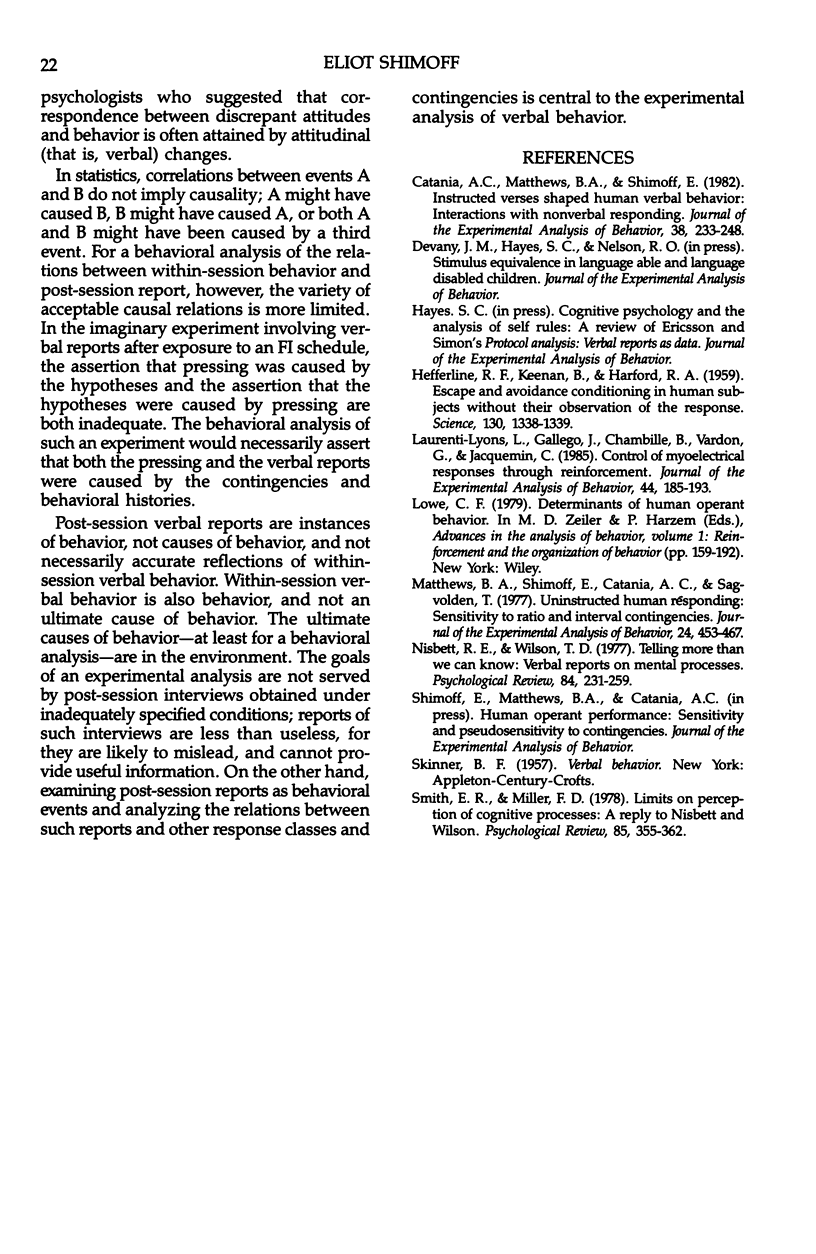Abstract
Experimental analyses of the performance of verbal subjects often include verbal reports, obtained during post-session interviews, about within-session covert verbal behavior (e.g., hypotheses about the contingencies). But such post-session reports are not necessarily accurate, and procedural details of how the samples were obtained are typically inadequate. Even when the post-session reports are accurate, the within-session hypotheses do not have the status of causes of within-session nonverbal performance. In an experimental analysis, it is important to treat such reports as instances, not causes, of behavior.
Full text
PDF



Selected References
These references are in PubMed. This may not be the complete list of references from this article.
- Catania A. C., Matthews B. A., Shimoff E. Instructed versus shaped human verbal behavior: Interactions with nonverbal responding. J Exp Anal Behav. 1982 Nov;38(3):233–248. doi: 10.1901/jeab.1982.38-233. [DOI] [PMC free article] [PubMed] [Google Scholar]
- HEFFERLINE R. F., KEENAN B., HARFORD R. A. Escape and avoidance conditioning in human subjects without their observation of the response. Science. 1959 Nov 13;130(3385):1338–1339. doi: 10.1126/science.130.3385.1338. [DOI] [PubMed] [Google Scholar]
- Laurenti-Lions L., Gallego J., Chambille B., Vardon G., Jacquemin C. Control of myoelectrical responses through reinforcement. J Exp Anal Behav. 1985 Sep;44(2):185–193. doi: 10.1901/jeab.1985.44-185. [DOI] [PMC free article] [PubMed] [Google Scholar]
- Matthews B. A., Shimoff E., Catania A. C., Sagvolden T. Uninstructed human responding: sensitivity to ratio and interval contingencies. J Exp Anal Behav. 1977 May;27(3):453–467. doi: 10.1901/jeab.1977.27-453. [DOI] [PMC free article] [PubMed] [Google Scholar]


